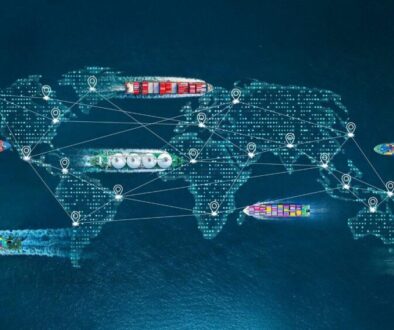Modernizing Global Institutions: Priorities for a New Era in Economy
Eighty years ago, the Bretton Woods Conference laid the foundation for the global economic and financial architecture that would shape international cooperation for decades. However, the institutions established then—the International Monetary Fund (IMF) and the World Bank—now appear increasingly inadequate in addressing the complex challenges of the 21st century. In light of evolving global economic realities and development priorities, radical reform is imperative. Here, we highlight eight priorities essential for constructing a monetary and economic order suitable for our time.
Giving Developing Economies a Voice
Since 1944, the global economic power landscape has shifted significantly, with emerging markets and developing economies now wielding considerable influence. Nevertheless, the quotas and voting systems at the Bretton Woods institutions remain skewed heavily in favor of advanced economies. For instance, countries like China and India, despite their substantial economic growth, still have disproportionately low voting power compared to their economic size. This imbalance not only undermines these institutions’ legitimacy but also hampers their effectiveness. It is crucial to reallocate quotas and voting shares and adopt a double-majority leadership selection procedure to ensure more equitable representation.
Strengthening the Global Financial Safety Net
The Global Financial Safety Net (GFSN)—the network of institutions providing critical financing in times of crisis—requires significant strengthening. Currently, the GFSN falls short in both the support it offers and its structural equity, leaving developing countries particularly vulnerable. For example, during the COVID-19 pandemic, many developing nations struggled to secure the necessary funding to cope with the economic fallout. Enhancing and equalizing the GFSN would better protect nations against climate shocks and other crises, enabling them to focus on local development.
Fair and Swift Sovereign-Debt Resolutions
An international mechanism for fair and swift resolutions to sovereign-debt crises is essential. An independent institution, detached from creditors and debtors, should be created to ensure equitable treatment. The ongoing sovereign-debt crisis in many parts of the Global South exemplifies the need for such a mechanism. This crisis obstructs vital investments in climate action and the United Nations Sustainable Development Goals (SDGs). Immediate solutions must be implemented to alleviate this burden and enable sustainable development.
Scaling Up Climate Finance
Climate finance must be significantly increased, aligning all financial flows, including lending by international financial institutions, with the Paris climate agreement goals. For example, the Green Climate Fund, designed to support developing countries in climate adaptation and mitigation, remains underfunded. International standard-setting bodies must commit to addressing climate-related financial risks and supporting this alignment to ensure sustainable progress.
Expanding the Role of Development Banks
The role of development banks—international, national, and subnational—must be significantly expanded. Climate-change adaptation and mitigation will necessitate vast investments beyond the capacity of commercial financial institutions alone. Public development banks and funds are thus essential for financing structural transformation and sustainable development. Multilateral development banks (MDBs) and development finance institutions (DFIs) must collaborate closely with their national counterparts to maximize their impact. For instance, the European Investment Bank has successfully partnered with national banks to fund renewable energy projects across Europe.
Progressing Toward a Multilateral Currency System
Progress toward a multilateral currency and reserve system centered on the IMF’s Special Drawing Rights (SDRs) represents the sixth priority. The current system, dominated by the US dollar, grants the Federal Reserve outsized influence over global monetary conditions. A more stable system would involve the IMF regularly issuing SDRs to meet global foreign-exchange reserve demands, with automatic allocations during crises. Additionally, MDBs and DFIs should offer financing in local currencies to mitigate currency risk for recipient countries. For instance, financing African infrastructure projects in local currencies would reduce exchange rate volatility risks.
Managing Capital Flow Volatility
To manage capital flow volatility, the IMF and regional financial institutions should develop policy-coordination mechanisms. Introducing an international financial-transaction tax could help limit disruptions from short-term capital flows. The substantial revenues generated by such a tax could then finance the SDGs and climate initiatives. For example, a small tax on global financial transactions could generate billions annually, funding renewable energy projects and poverty alleviation programs.
Fortifying the International Tax Architecture
The international tax architecture needs fortification to support equitable, inclusive, and sustainable development. Greater tax transparency and enhanced mechanisms for cross-border sharing of financial information could boost domestic tax revenues. Implementing a binding UN Framework Convention on Taxation, coupled with measures to combat illicit financial flows, would provide new development finance sources and reduce reliance on official development assistance. For instance, curbing tax evasion by multinational corporations could unlock significant resources for public investment in developing countries.
A Call for Collective Action
The 1944 Bretton Woods Conference was a landmark in collective action. Today, we stand at the brink of another such moment. A new, forward-looking vision for the global financial architecture is urgently needed. It is time for world leaders to advance a reformed system that meets the demands of the 21st century, ensuring sustainable and inclusive growth for all.



